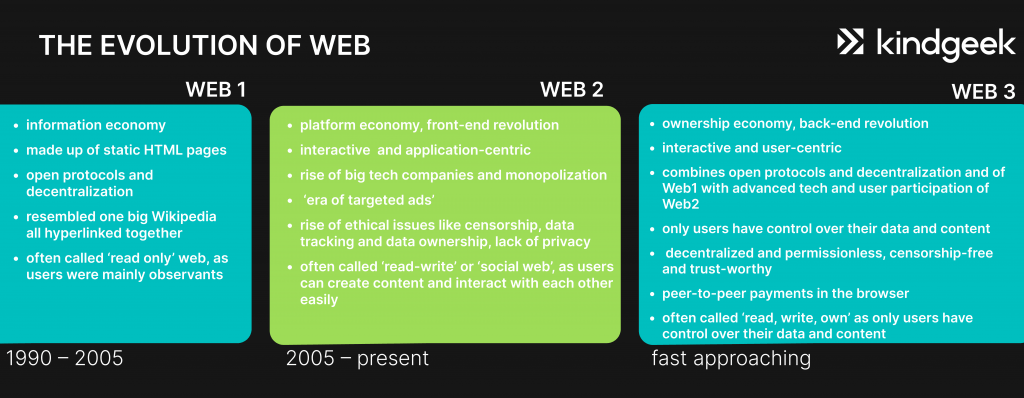Heart Hunter
Exploring the passion for the heart's adventures.
The Tipping Point of Wagering: Web3’s Betting Revolution
Discover how Web3 is transforming betting with cutting-edge technology. Join the revolution and explore the future of wagering today!
How Web3 is Transforming the Betting Landscape: Key Innovations Explained
The emergence of Web3 technology is revolutionizing the betting landscape by integrating decentralization, transparency, and enhanced user control. Unlike traditional betting platforms, which often operate on centralized servers with limited user data privacy, Web3 utilizes blockchain technology to enable peer-to-peer betting. This innovation ensures that all transactions are recorded on an immutable ledger, significantly reducing the risk of fraud and providing users with a trustless environment to place their bets. As a result, players can engage in betting activities with greater confidence, fostering a more inclusive and transparent ecosystem.
Additionally, key innovations such as smart contracts are reshaping how bets are placed and settled in the online gaming space. Smart contracts automate the execution of bets without the need for intermediaries, ensuring that winnings are distributed instantly and fairly upon the resolution of events. Furthermore, the rise of decentralized finance (DeFi) is introducing new betting models and liquidity pools, allowing users to leverage their crypto assets for enhanced betting experiences. With these developments, Web3 is not just transforming betting; it's setting the stage for a more equitable and engaging future for gamers and enthusiasts alike.

Counter-Strike is a popular tactical first-person shooter game where teams compete against each other to achieve objectives, such as defusing bombs or rescuing hostages. Players can enhance their gaming experience by utilizing various promotions, such as the cloudbet promo code, which offers bonuses and rewards. The game has evolved over the years, with different versions like Counter-Strike: Global Offensive gaining a massive following and hosting competitive tournaments worldwide.
The Future of Sports Betting: Exploring the Role of Decentralization
The realm of sports betting is rapidly evolving, with decentralization poised to play a pivotal role in shaping its future. Traditionally dominated by centralized platforms that regulate transactions and maintain oversight, the introduction of blockchain technology and decentralized applications (dApps) is transforming how bettors engage with their favorite sports. This shift not only enhances transparency and fairness but also allows for greater autonomy, giving users more control over their bets and winnings. With decentralized finance (DeFi) gaining traction, bettors can expect a more streamlined experience that minimizes fees and maximizes the potential for profit.
Moreover, the implementation of smart contracts is set to redefine trust in sports betting. By automating the betting process, smart contracts eliminate the need for intermediaries, reducing the risk of fraud and ensuring that all parties adhere to agreed-upon terms. This significant leap towards decentralization empowers users, creating a peer-to-peer environment where bettors can interact directly. As regulatory frameworks evolve to accommodate this technological advancement, the future of sports betting could witness a democratization of the industry, ultimately providing a more engaging and secure experience for all participants.
Is Web3 the End of Traditional Wagering? Key Comparisons and Insights
The emergence of Web3 technology has sparked conversations about its potential to revolutionize various industries, including the wagering landscape. Unlike traditional betting systems that rely on centralized entities, Web3 introduces decentralized platforms that enable peer-to-peer transactions. This shift not only enhances transparency but also empowers users by giving them greater control over their wagering activities. By leveraging blockchain technology, players can now engage in secure and immutable betting experiences, minimizing fraud and ensuring fair play.
Moreover, the integration of smart contracts in Web3 wagering platforms allows automated and trustless transactions. Unlike traditional methods that often involve lengthy processes and intermediaries, smart contracts execute bets based on predefined conditions, resulting in instant payouts and reduced operational costs. As we move forward, it is crucial for traditional wagering operators to adapt to the changing landscape or risk obsolescence. The question remains: Is Web3 the end of traditional wagering? Only time will tell, but the advantages of decentralization and user empowerment are undeniably compelling.